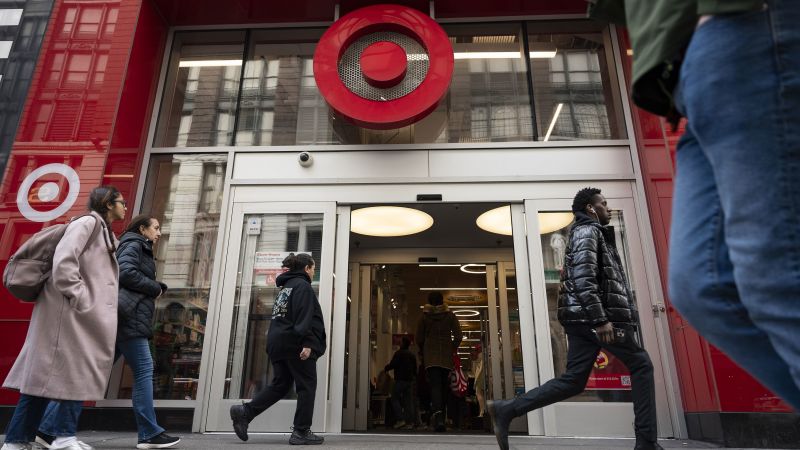The decision by Target to roll back its Diversity, Equity, and Inclusion (DEI) efforts has ignited a firestorm of controversy, leading to significant backlash and a tangible impact on the company’s foot traffic. This move reflects a broader trend of corporations navigating the delicate balance between political pressures and consumer expectations. As Target attempts to recalibrate its approach, it faces the challenge of regaining customer trust and maintaining its commitment to diversity.
This article delves into the intricacies of Target’s DEI rollback, exploring the reasons behind the decision, the ensuing boycott led by prominent figures, and the resulting consequences on the company’s business. By examining the perspectives of both supporters and detractors, we aim to provide a comprehensive understanding of the complex dynamics at play.
Target’s DEI Initiatives: A Brief Overview
For years, Target had positioned itself as a champion of diversity, implementing various DEI initiatives to promote inclusivity within its workforce and product offerings. These efforts included setting hiring goals for minority employees, establishing an executive committee focused on racial justice, and actively supporting Black-owned businesses. Brian Cornell, Target’s CEO, had publicly praised these initiatives, attributing them to the company’s growth and success.
However, with increasing pressure from right-wing activists, legal groups, and the Trump administration, Target began to reassess its DEI strategy. This shift reflects a larger trend among Fortune 500 companies, many of which have backtracked on their DEI commitments in response to conservative challenges.
The Decision to Rollback DEI: Reasons and Reactions
On January 24, Target officially announced its decision to eliminate hiring goals for minority employees, dissolve the executive committee focused on racial justice, and make other significant changes to its DEI initiatives. The company framed this move as a shift towards a new strategy called “Belonging at the Bullseye,” emphasizing its commitment to creating a sense of belonging for all stakeholders.
However, the announcement was met with swift and fierce opposition from customers who felt betrayed by a company that had previously championed diversity. Anne and Lucy Dayton, daughters of one of Target’s co-founders, publicly criticized the decision, calling it “a betrayal.”
The Target Fast: A Call for Action
In response to Target’s DEI rollback, Rev. Jamal Bryant, the senior pastor of New Birth Missionary Baptist Church near Atlanta, spearheaded a 40-day “fast” from shopping at the big-box store during Lent (March 5 to April 17). The Target Fast boycott garnered over 200,000 participants, sending a clear message to the company.
Bryant emphasized the importance of economic activism, stating, “They hear me. The cash register hears me. Power concedes nothing without a demand.” He called on consumers to buy directly from Black-owned businesses and sell their Target stock.
Declining Foot Traffic: The Numbers Don’t Lie
The impact of the boycott and the overall backlash against Target’s DEI rollback has been evident in the company’s foot traffic data. According to analytics firm Placer.ai, foot traffic at Target stores has declined for 10 consecutive weeks, dropping 9% year-over-year in February and 6.5% year-over-year in March.
While Placer.ai acknowledges that various factors may have contributed to this decline, including weather and a drop in post-holiday spending, Rev. Bryant asserts that the boycott played a significant role.
The Plight of Minority-Owned Businesses: A Double-Edged Sword
While the boycott aims to hold Target accountable for its DEI rollback, it also presents a challenge for minority-owned businesses that rely on the retailer’s platform to reach a wider audience. Decreased spending at Target overall means that these businesses are earning far less.
Chantel Powell, founder of Play Pits, a body care brand that has been on Target shelves since 2022, reported a 30% decrease in store sales compared to 2024. Carlton Mackey, founder of apparel brand Black Men Smile, expressed his disappointment with Target’s DEI pullback, stating that he could no longer stand in solidarity with the company.
Target’s Response: A Pledge and a Town Hall
In an attempt to address community concerns, Target CEO Brian Cornell met with Rev. Jamal Bryant on Thursday. Following the meeting, Bryant announced that Target had agreed to honor its pledge to spend $2 billion with Black-owned businesses — a commitment initially made in 2020.
However, Bryant emphasized that this was not enough and called for the boycott to continue. He hopes Cornell will attend a town hall on Tuesday to address community concerns and demonstrate a genuine commitment to diversity and inclusion.
The Road Ahead: Navigating the DEI Tightrope
Target’s DEI rollback serves as a cautionary tale for corporations navigating the complex landscape of diversity, equity, and inclusion. The company’s experience highlights the importance of staying true to its values, engaging in meaningful dialogue with stakeholders, and understanding the economic impact of DEI initiatives.
As Target moves forward, it must find a way to balance the demands of conservative pressure with the expectations of its progressive customer base. This will require a renewed commitment to diversity, a willingness to listen to community concerns, and a strategic approach that ensures inclusivity remains a core value.

Leave a Reply